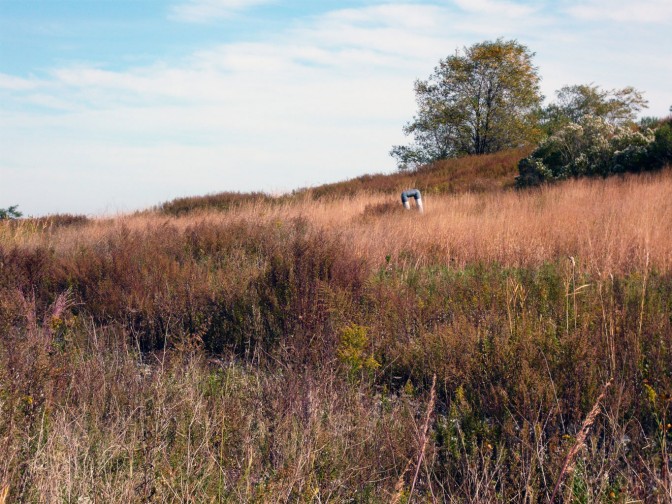Tags: Thats So Native
Sparrow Travelers of Freshkills Park
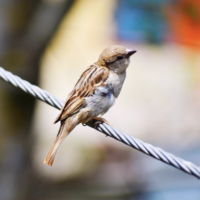
Did you know that there are over 35 species of sparrows throughout North America? About a third of the species are fairly common throughout the continent. The most common and easily recognized sparrow is the House Sparrow. They are native to Eurasia and northern Africa and were introduced into Central Park in 1850.
...MOREFourth Year of Bird Banding Reveals New Species
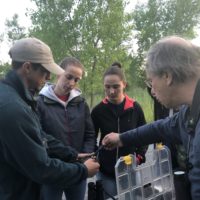
Monitoring Avian Productivity and Survivorship
This summer, researchers from College of Staten Island completed their fourth year of Monitoring Avian Productivity and Survivorship (MAPS) bird banding at Freshkills Park. MAPS is a collaborative, continent-wide research effort coordinated by the Institute for Bird Populations, with over 1,200 participant banding stations.
...MORESoil Moisture Research Provides Insight into Grassland Bird Preferences
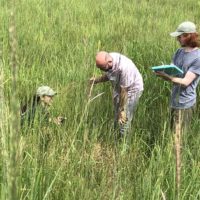
This summer, Freshkills staff and interns conducted fieldwork to assess the levels of moisture in the grassland soil on North and East Mounds. This research is part of an ongoing project to characterize the differences between the grasslands within Freshkills Park.
...MOREFish Monitoring Seining Program Continues in 2019
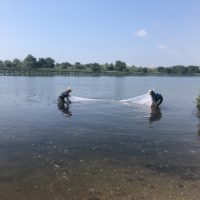
Throughout August, Freshkills Park researchers have been monitoring the diversity of fish species in the park’s Main Creek. This research has been ongoing since 2016 as a means of staying up to date on the health and quality of the aquatic ecosystems at the park.
...MORERed Fox Monitoring Project at Freshkills Park
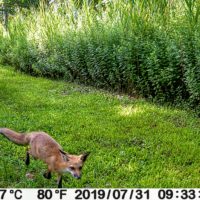
The red fox, one of Staten Island’s rarest and most elusive mammals, is now living in what was once the world’s largest landfill. Prompted by occasional sightings, our science team has set up specially designed motion sensor cameras to capture any movement of wildlife within Freshkills Park.
...MOREPollinators at Freshkills Park
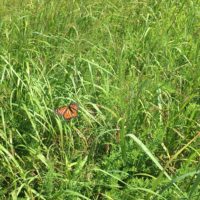
Bees, butterflies, hummingbirds, and bats are just a few examples of the animals that we call pollinators and that we rely on for approximately one third of our food supply and 90% of our world’s flowering plants. When visiting plants for food or shelter, pollinators attract pollen – often in fascinating ways – to themselves and later deposit it on the tops of flowers of the same species, thereby allowing for the creation of new seeds and reproduction.
...MOREFreshkills Park hosts Grasslands-themed dinner and discussion
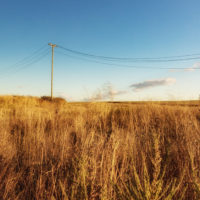
On June 25, Freshkills Park staff and local Staten Island residents came together at the Greenbelt Nature Center to participate in the first ever “Grasslands Dinner.” The evening centered on the history of grasslands in the United States, the biodiversity of plants and animals associated with these habitats, and how Freshkills Park is helping to bring grassland back to New York City.
...MOREGrassland Research Continues for Fourth Year
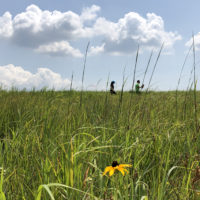
This spring, staff and interns will continue studying the grasslands at Freshkills Park. The research project is working to characterize the structure and diversity of the grasslands on two of the capped landfill mounds. Large populations of grassland birds have been nesting at East Mound, but not North Mound.
...MOREPanel Explores Nature Within the Built Environment
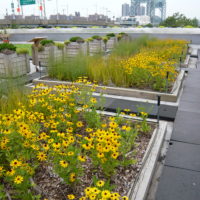
This month, Freshkills Park’s Cait Field and Mariel Villeré presented the panel, “Urban Ecosystem Services: Scales of Cultivation” at the Nature, Ecology & Society Colloquium at the CUNY Graduate Center, with speakers Annie Weinmayr, Jessica Hoch, and Melissa Zavala. The panel explored variations on the definition of “nature” within the built environment and how expanding that definition can shape new strategies for enhancing ecosystem services in our cities.
...MOREWetland Restoration at Freshkills Park
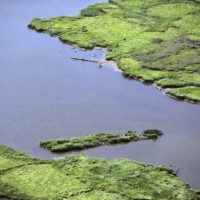
The Fresh Kills site was once a network of waterways with acres of tidal wetlands. When the Fresh Kills Landfill opened in 1948, people did not realize the ecological value of this habitat. Now NYC Parks is transforming the former landfill into Freshkills Park.
...MORE
